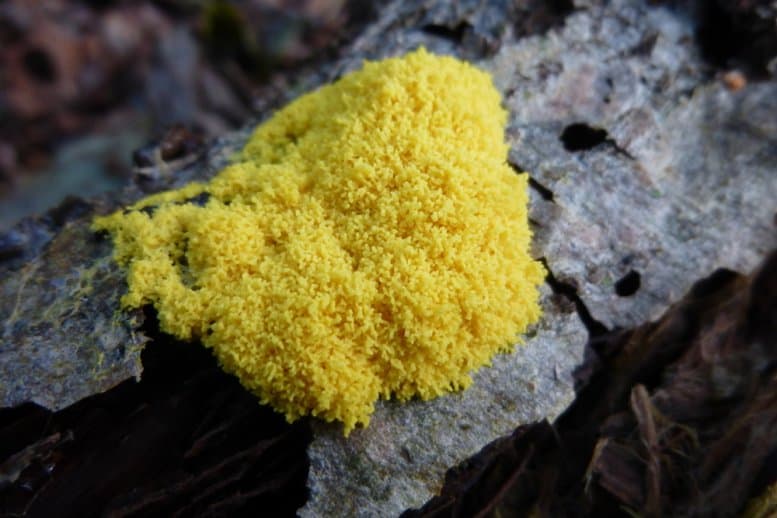A slime mould is a single-celled organism that lives in the soil. In a given moment, possibly due to a lack of food, it converges above the ground in tens of thousands to form a plasmodium: an aggregation of cells that behaves as a single organism. If you were to cut a plasmodium into quarters, the parts would come together again and act as if nothing had happened.

Slime moulds don’t have a central nervous system or brain or anything like that, yet they exhibit incredibly intelligent behaviour. If you placed food on top of all the cities on a map of your country, not only would the slime mould find all the cities, it would make connections between them. And not just at random, but within 24 hours, it would design the most efficient transport network. This same behaviour can also be observed in fungi. They can also solve mazes — as you can see in this Youtube video:
Intelligence is still something we don’t like to attribute to other organisms. But remember: if intelligence is everywhere, we’d no longer be alone. We’d soon no longer be the only species busy maintaining the liveability of our planet. We’d have a zillion helpers. If we let them do their work undisturbed, they can help clean up pollution and restore balance. They can do things through complex collaborations that seem like miracles to us.
Every day, it’s becoming clearer that this is what we need: miracles. Lots of miracles. Every day, it’s becoming more obvious that we need biodiversity for this.
Because life on Earth creates the conditions that make life on Earth possible. Once you realise intelligence is not a uniquely human trait, you’ll start seeing it everywhere.
Look at the world with wide eyes. Marvel like a child. It’s OK that we’ll never know how life on Earth works. It is a self-managing process, constantly changing. It is all a great big miracle.
Original title: Intelligentie is overal, translation by Aveen Colgan
